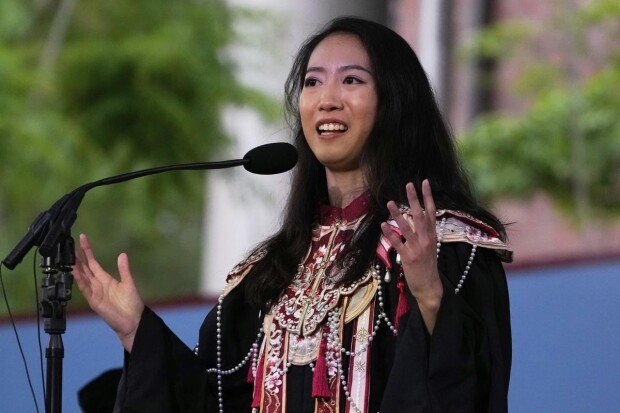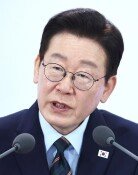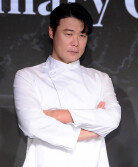Harvard speech draws praise, backlash over privilege
Harvard speech draws praise, backlash over privilege
Posted June. 03, 2025 07:02,
Updated June. 03, 2025 07:02

What binds us is not ideology, but our shared humanity.”
On May 29, at Harvard University's commencement ceremony, Chinese student Jiang Yurong (25) delivered a seven-minute speech that moved many, her voice occasionally trembling with emotion. She warned that today’s interconnected world is giving way to division, fear, and conflict—an indirect criticism of the Trump administration’s recent tightening of student visa policies. Jiang is the first Chinese woman to be selected as a student speaker in Harvard's history.
Born in Qingdao, Shandong Province, Jiang attended high school in the U.K., completed her undergraduate studies at Duke University, and earned a master’s degree in international development from Harvard Kennedy School. In an interview with the Associated Press the day after graduation, she said, “Throughout the speech, I was thinking of friends whose futures have become uncertain due to visa issues.”
Her speech drew particular attention against the backdrop of the Trump administration's push to revoke visa privileges from international students at specific institutions, including Harvard, accusing them of being hotbeds of leftist ideology and antisemitism. Chinese media praised the moment as “a 25-year-old Chinese woman raising her voice at Harvard,” and clips of her address quickly went viral online.
But the praise was soon met with controversy. Jiang’s past volunteer work for the China Biodiversity Conservation and Green Development Foundation, where her father, Jiang Zhiming, serves as a board member, has raised eyebrows. Notably, she reportedly received a recommendation letter from the foundation’s secretary-general when applying to Harvard, prompting some Chinese social media users to question whether she had benefited from her father's position.
In the U.S., critics have gone further, alleging ties to the Chinese Communist Party. Conservative commentators cited by the South China Morning Post accused Jiang of parroting Chinese President Xi Jinping’s “Community of Shared Future for Mankind” rhetoric, calling her a spokesperson for a CCP-affiliated NGO that receives party funding and oversight.
According to the Wall Street Journal, since the 1990s, China has run programs to send party and government officials to study public policy in the West, with U.S. institutions playing a leading role. Harvard Kennedy School, in particular, has become known as a preferred destination for CCP cadres and is sometimes dubbed “the overseas Party school.” Notable alums include Liu He, China’s former chief trade negotiator, and Bo Guagua, son of fallen political figure Bo Xilai. Other universities, such as Stanford and Syracuse, also host training programs for Chinese officials, which have helped strengthen their financial base and alumni networks in China.
Chul-Jung Kim tnf@donga.com



![[단독]폴란드, 韓 해군 최초 잠수함 ‘장보고함’ 무상 양도 안받기로](https://dimg.donga.com/c/138/175/90/1/wps/NEWS/IMAGE/2026/02/27/133437397.1.jpg)



